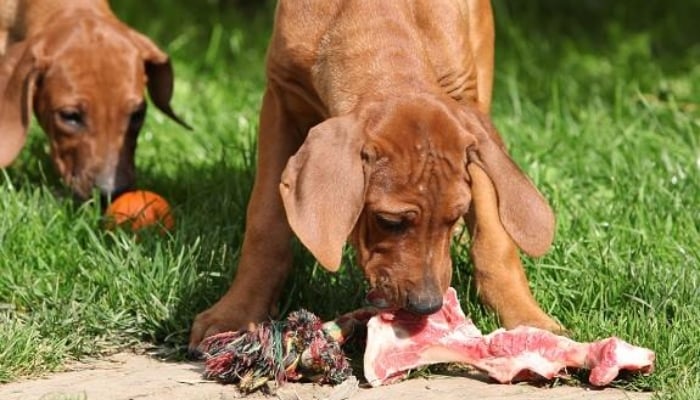Feeding dogs raw meat could harm their owners, study reveals
Bacteria from dogs' faeces could impact owners’ health too
July 21, 2022

- Dogs with raw meat diet are more likely to excrete bacteria known as Escherichia coli in their faeces.
- Bacteria from dogs' faeces could impact owners’ health too.
- Studies prove that dogs may excrete bacteria regardless of age.
Two studies led by researchers from the University of Bristol discovered that pet owners may put their own health at risk by feeding dogs raw meat.
According to the study, dogs with a raw meat diet are more likely to excrete bacteria known as Escherichia coli (E coli) in their faeces. Since past research has already proven that bacteria between dogs and owners is likely shared through interactions, E coli may harm a pet owner’s health too.
“Antibiotic-resistant bacteria are everywhere, but some antibiotics are considered critically important for use in humans. We have shown that dogs fed raw meat are more likely to carry bacteria resistant to these important medicines," said Matthew Avison, Professor of Molecular Bacteriology from the School of Cellular and Molecular Medicine, who led the microbiology aspects of these studies at a university release. “This doesn’t mean that the animal, or the owner, will become sick.”
Researchers studied a total of 823 dogs and their owners (223 puppies for the first study, 600 dogs for the second). Owners took a survey about their dogs, their dog’s diets and their environment and provided faecal samples.
Both studies proved that dogs may excrete bacteria regardless of age and that the environment a dog lives in also plays a role in the potential of them excreting bacteria.
“E coli is a widespread bacterium that is found in the intestines of all humans and animals, however, it is a common cause of many diseases including urinary tract infection and can cause serious illness including sepsis if it spreads to other parts of the body,” said Avison.
Kristen Reyher is a professor of Veterinary Epidemiology and Population Health at the Bristol Veterinary School and co-author of both papers. She encourages dog owners to create a clean environment for their pets.
“We know humans and animals share bacteria with one another, so what we find in your pet may well also be in you. Pet owners should be encouraged to practice good hygiene and not feeding raw food to your dog can be part of this,” said Reyher. “We can all do our part to decrease antibiotic resistance and its terrible effects on both human and animal health.”
The first study was published in One Health; the second was published today in the Journal of Antimicrobial Chemotherapy.









